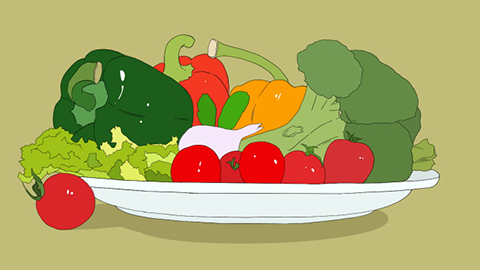What are the dietary do's and don'ts for patients with mixed hemorrhoids?
Patients with mixed hemorrhoids should pay attention to their diet. Recommended foods generally include vegetables rich in dietary fiber, high-fiber fruits, whole-grain staple foods, nuts that help lubricate the intestines and relieve constipation, and light soups and fluids. Foods to avoid typically include spicy and irritating foods, fried and greasy foods, alcoholic beverages, heat-inducing foods that easily cause internal heat, and hard-to-digest foods. The details are as follows:

I. Recommended Foods
1. Vegetables rich in dietary fiber: Such as celery, spinach, leeks, broccoli, etc. These vegetables promote intestinal peristalsis, increase stool volume, help soften feces, reduce friction and irritation to hemorrhoidal tissue during defecation, and alleviate difficulty in bowel movements.
2. High-fiber fruits: Such as apples, bananas, dragon fruit, kiwifruit, etc. These fruits are rich in dietary fiber and water, which not only provide essential nutrients but also enhance intestinal motility, prevent constipation, and reduce discomfort during defecation for patients with mixed hemorrhoids.
3. Whole-grain staple foods: Such as oats, brown rice, corn, sweet potatoes, etc. Replacing part of refined rice and flour with these grains increases dietary fiber intake, improves gut environment, promotes regular bowel movements, and helps prevent worsening of symptoms due to dry or hard stools.
4. Nuts that lubricate the intestines and relieve constipation: Such as walnuts, almonds, sesame seeds (in moderation). The natural oils in these nuts help lubricate the intestines, facilitating smoother bowel movements. They also provide unsaturated fatty acids, which support recovery to some extent.
5. Light soups and fluids: Such as vegetable soup, wax gourd soup, millet porridge, etc. These fluids help maintain adequate hydration and keep the intestines moist. Their mild nature makes them easy to digest without burdening the gastrointestinal system, making them suitable for daily consumption by patients with mixed hemorrhoids.
II. Foods to Avoid
1. Spicy and irritating foods: Such as chili peppers, Sichuan peppercorns, ginger, raw garlic (especially in excess), etc. These foods can irritate the mucous membranes of the rectum and anus, causing local congestion and swelling, thereby worsening pain, bleeding, and other hemorrhoid symptoms.
2. Fried and greasy foods: Such as fried chicken, french fries, fatty meats, etc. These foods are difficult to digest and slow down intestinal motility, increasing the risk of constipation. Excessive straining during bowel movements may lead to prolapse or increased bleeding of hemorrhoids.
3. Alcoholic beverages: Such as white liquor, beer, red wine, etc. Alcohol causes dilation of blood vessels around the anus, leading to engorgement and swelling of hemorrhoids, intensifying pain and discomfort. It may also impair healing and hinder symptom relief in mixed hemorrhoids.
4. Heat-inducing foods that easily cause internal heat: Such as lamb, dog meat, lychee, longan, etc. Consuming these foods may lead to accumulation of internal heat, triggering constipation or aggravating inflammation, thus worsening symptoms of mixed hemorrhoids.
5. Hard and indigestible foods: Such as excessive raw nuts, undercooked legumes, fried crackers, etc. These foods are difficult to digest and may scratch the rectal mucosa or contribute to dry, hard stools, increasing defecation difficulty and potentially worsening damage to hemorrhoidal tissue.
Patients with mixed hemorrhoids should maintain a light, balanced diet, eat regularly, and avoid overeating. Adequate fluid intake is also important. If symptoms such as frequent difficulty in bowel movements, hemorrhoid pain, or bleeding persist despite dietary adjustments, medical attention should be sought promptly. Following professional guidance for treatment and care is essential to prevent disease progression.







